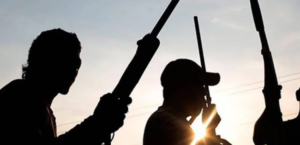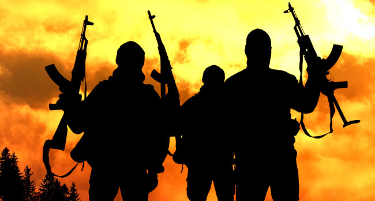Over 40 individuals have reportedly lost their lives in a tragic attack by bandits in the Zurak Kompani and Bandalala communities within the Bashar District of Wase Local Government Area in Plateau State.
According to some Wase residents who spoke to Channels Television via phone, the brutal assault on these villages took place on Monday night as residents were preparing to retire from their day’s work. The residents recounted that the bandits launched simultaneous attacks on the villages, setting houses ablaze, which resulted in chaos. This led to the death of several residents and left many others injured. It has been reported that over thirty people were killed in Kompani Zurak, while another ten lost their lives in Bandalala. Additionally, numerous individuals remain missing.
The aftermath of the attacks saw many residents fleeing to neighboring villages in search of safety. Audu Ummah, a resident of Wase town, confirmed that some of the injured from the affected communities are currently receiving medical treatment at various health centers. Meanwhile, other survivors have relocated to Wase and other surrounding villages.
As of the time of this report, there has been no official comment from security agencies regarding the attacks. Similarly, the state government has yet to issue a statement.

This incident is a stark reminder of the escalating violence in the North-Central state of Plateau, which has been beleaguered by recurrent clashes. Plateau State, positioned along the dividing line between Nigeria’s predominantly Muslim north and largely Christian south, has long been a hotspot for intercommunal violence. In a particularly harrowing series of events last December, numerous people were killed in raids on villages, displacing thousands of others.
The roots of these violent clashes in Nigeria’s North-West and North-Central states can often be traced back to longstanding tensions over land between nomadic herders and pastoral farmers. These tensions have been exacerbated by competition for natural resources, which is further intensified by rapid population growth and climate pressures, spiraling into broader criminality.
The ongoing violence and instability have prompted grave concerns from international bodies. The United Nations World Food Programme has issued warnings that the combination of conflict and insecurity, along with factors like inflation and climate change, could significantly increase hunger levels across the country.
In light of these tragic events, the need for a concerted effort to address the underlying causes of these conflicts has never been more pressing. Ensuring the safety and security of all residents in these vulnerable regions must be a priority to prevent further loss of life and displacement.




